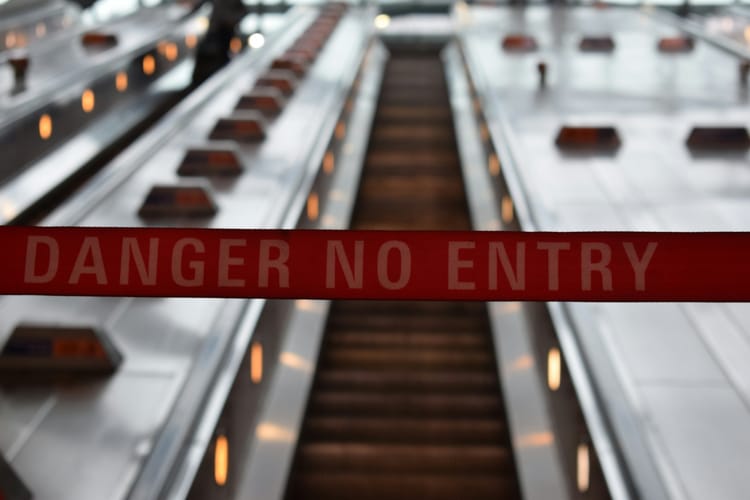What you need to know about Jurisdictional Complexities of Anonymous Hosting

In the world of anonymous hosting, where privacy and discretion are paramount, understanding the intersection of various legal jurisdictions is essential. When offering hosting services, companies must navigate not only the laws of their home country but also the legal frameworks of the countries where their servers are located and, importantly, the laws of their customers' jurisdictions. These overlapping legal considerations make anonymous hosting both an opportunity and a challenge at times.
1. The Jurisdiction of the Hosting Provider (Headquarters)
At the heart of any hosting company is its headquarters. The laws of the country in which the hosting provider is incorporated will govern many aspects of its operations, including business practices, taxation, intellectual property, and liability. For anonymous hosting providers, these laws can create a tension between business operations and the desire for customer privacy.
Key Considerations:
- Business Compliance: Depending on the country of incorporation, the hosting company may be required to comply with local business regulations, tax laws, and anti-money laundering (AML) and know your customer (KYC) obligations.
- Data Retention and Privacy Laws: Countries vary in terms of data privacy protections. For example, the European Union’s General Data Protection Regulation (GDPR) imposes strict rules on how personal data is collected and stored, while other countries might have less stringent requirements.
- Liability and Enforcement: If a legal issue arises, the laws of the country where the hosting provider is based may determine liability. This could include questions of responsibility for illegal content hosted on the servers or responding to government requests for information.
Challenges for Anonymous Hosting Providers:
- Competing Privacy Laws: Balancing the protection of customers’ anonymity with local laws can be tricky. Hosting companies might need to tread carefully to avoid violating regulations in their own jurisdiction.
2. The Jurisdiction of the Server Location
The location of the physical servers plays a crucial role in determining which laws apply. In the case of anonymous hosting, companies often opt to place their servers in countries with more lenient or privacy-protective laws. However, this approach introduces complexities, as the host country’s legal system will still govern how the servers can be accessed, how data is handled, and under what circumstances the government can intervene.
Key Considerations:
- Data Sovereignty: The physical location of the server determines which country's laws govern the data stored on it. For example, if a server is hosted in Switzerland, Swiss law would apply, potentially offering greater privacy protections than in other countries.
- International Legal Conflicts: In the case of cross-border legal issues, a hosting provider could face conflicting demands from authorities in different jurisdictions. For example, a hosting company might be required by one country to hand over data stored on its servers, while another jurisdiction forbids the transfer of that data.
- Extradition and Legal Requests: Some countries have agreements allowing them to request data or cooperate with foreign governments in investigations. Anonymous hosting companies may need to carefully assess whether the server location has treaties with other nations that could put their customers at risk.
Challenges for Anonymous Hosting Providers:
- Governmental Requests for Data: Countries with strong data protection laws may still be subject to requests from foreign governments, creating potential conflicts between customer privacy and legal obligations.
- Infrastructure Security: Local laws may require hosting companies to implement specific security measures or cooperate with law enforcement. Ensuring compliance while maintaining anonymity can be difficult.

3. The Jurisdiction of the Customer
When providing anonymous hosting services, understanding the laws of the customer's jurisdiction is equally important. The laws of the country where the customer is located can dictate the types of activities that can be hosted, the content that can be shared, and even the kind of data that can be stored. In some cases, customers may be subject to criminal or civil liability in their home country, depending on the content they host or distribute.
Key Considerations:
- Content Regulations: Different countries have different rules about what constitutes illegal content. For example, one country may have strict anti-piracy laws, while another may criminalize certain types of speech. Hosting companies may need to assess whether the content hosted by customers could potentially violate these laws.
- Criminal Liability: If a customer is engaged in illegal activities, such as distributing child exploitation material or promoting terrorism, they could face criminal charges in their home country. Hosting providers may need to be vigilant in responding to legal requests or subpoenas that involve their customers.
- Anonymity vs. Accountability: While anonymous hosting services aim to protect the identity of their clients, they may still be subject to legal pressures that force them to identify individuals if criminal activity is involved. Providers must carefully navigate the balance between protecting client anonymity and complying with the law.
Challenges for Anonymous Hosting Providers:
- Legal Risks for Customers: Hosting illegal content or engaging in illicit activities can put both the customer and the hosting provider at risk, as local authorities may demand the identification of the customer or the removal of the offending content.
- Adhering to International Laws: Hosting providers might not be able to offer services to customers from certain jurisdictions due to the nature of the laws in those regions.
4. Practical Implications for Anonymous Hosting Providers
For hosting companies offering anonymous services, practical steps need to be taken to ensure compliance with all relevant laws. This includes choosing the right server locations, understanding the specific legal environment in each jurisdiction, and implementing policies that protect both the customer’s privacy and the hosting company’s interests.
Best Practices:
- Establish Clear Terms of Service: Hosting providers should clearly outline the types of activities that are not allowed on their platform. These terms should align with local laws and provide a clear framework for what content can and cannot be hosted.
- Develop a Response Protocol for Legal Requests: Hosting providers should have a standard procedure for handling government requests for information, ensuring that they are compliant with local laws without compromising customer anonymity.
- Diversify Server Locations: Hosting providers can minimize legal risk by strategically placing servers in countries with favorable legal environments. This strategy helps mitigate potential conflicts between jurisdictions.
What have we learned?
The legal landscape surrounding anonymous hosting is complex and multifaceted. Hosting providers must navigate a delicate balance between maintaining customer privacy and complying with local, international, and even extraterritorial laws. By understanding the jurisdictional intricacies of their operations, hosting companies can mitigate legal risks and continue offering secure, private services to their customers.
Ultimately, the success of an anonymous hosting provider depends not only on technical infrastructure and security but also on their ability to navigate this complex legal framework. As privacy and anonymity continue to be at the forefront of internet discussions, hosting providers must stay informed about evolving laws to best serve their clients while staying compliant with applicable regulations.




